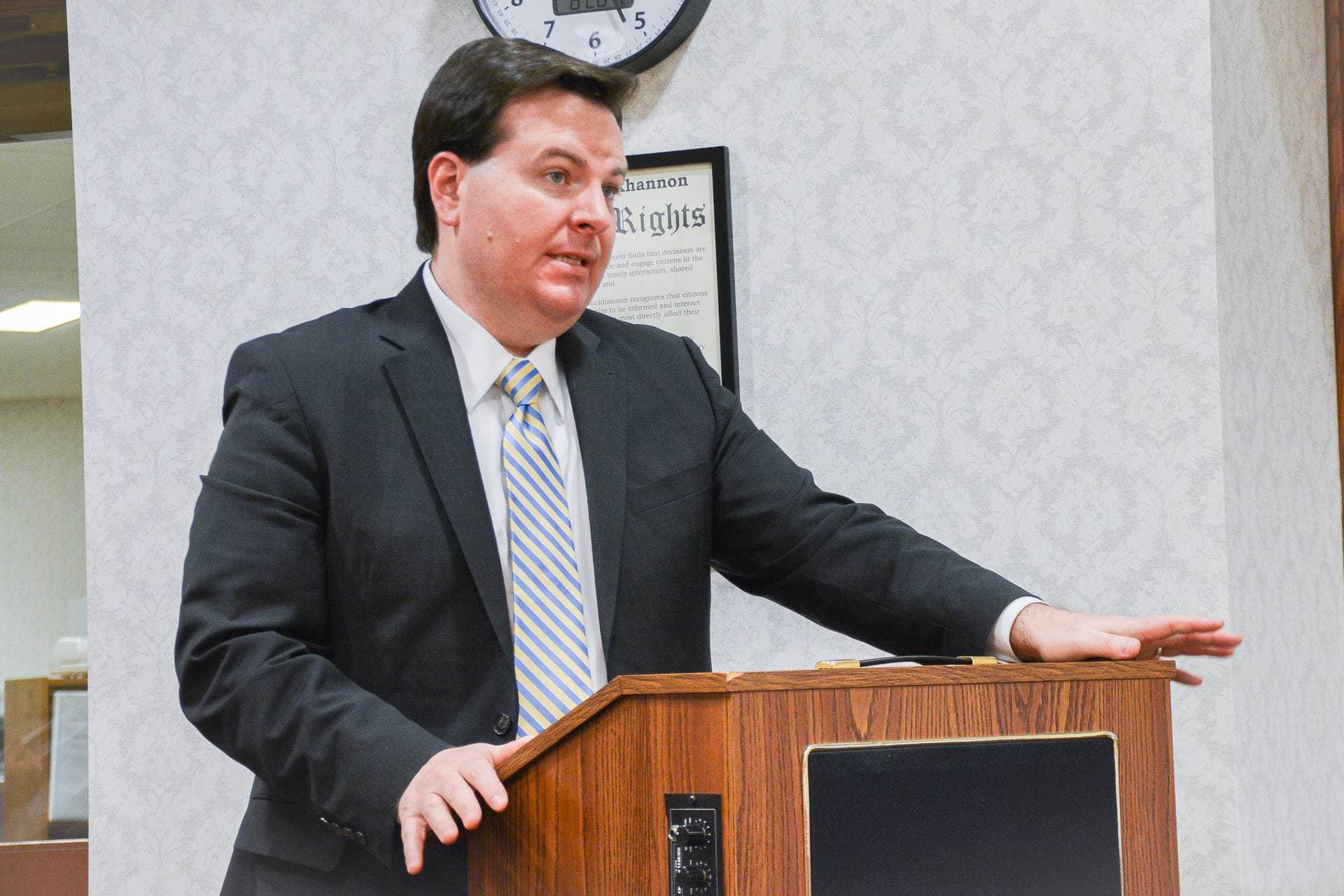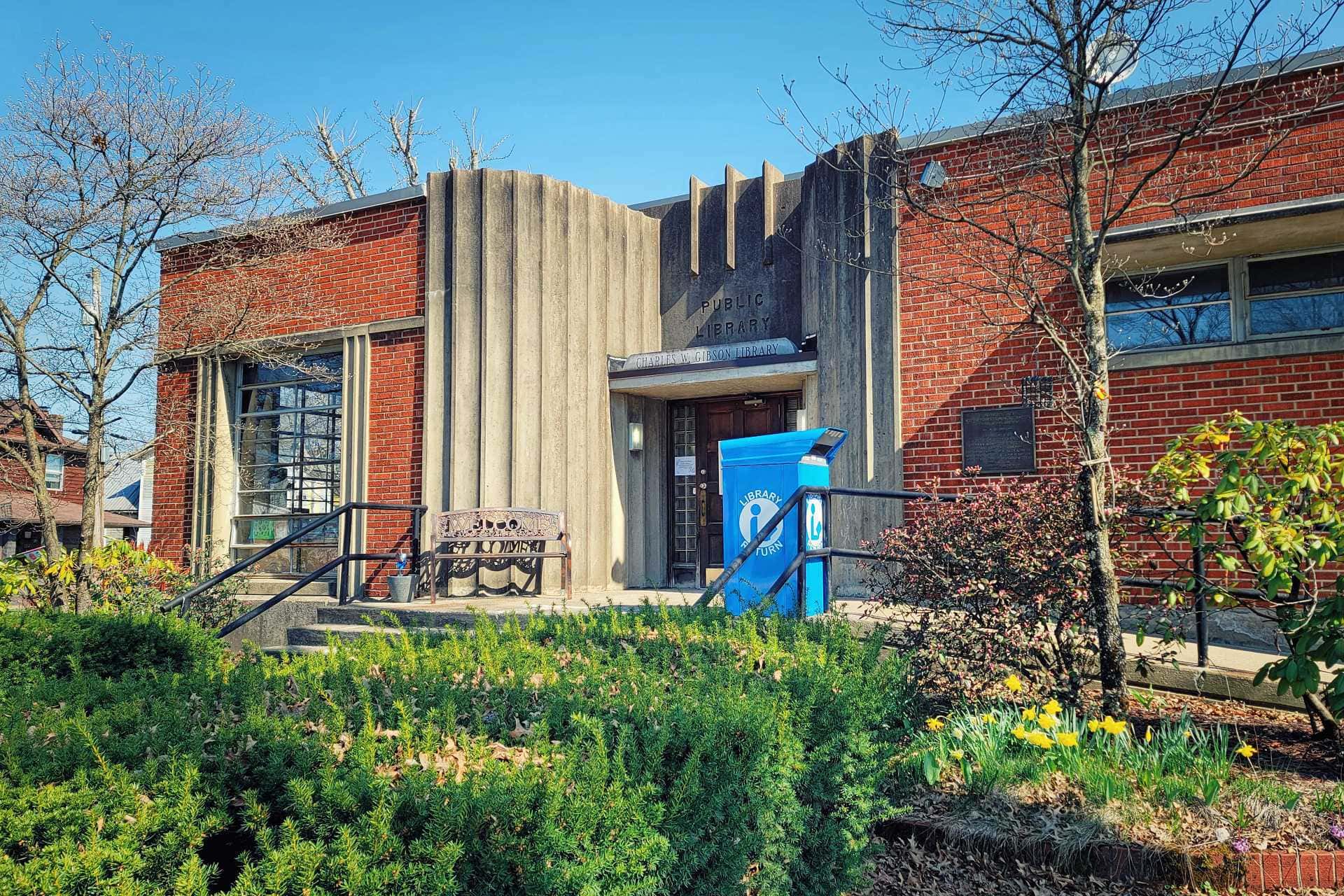BUCKHANNON – Buckhannon City Council on Thursday passed on first reading an ordinance that would impose a 1 percent municipal sales tax on purchases made within city bounds.
So, while the answer to the question of whether council would support the implementation of a 1 percent municipal sales tax appeared to be clear at Thursday’s council meeting, the issue that remained unresolved following adjournment was exactly when the city will start to collect that tax, should it pass on second reading at council’s Feb. 7 meeting.
Although the city had originally planned to begin collections on July 1, 2019, at the start of the 2019-2020 fiscal year, the West Virginia State Tax Commissioner recently advised city officials that collections couldn’t commence until Jan. 1, 2020 due to timing issues.
However, the city plans to appeal the state tax commissioner’s decision and may even enlist the help of Sen. Bill Hamilton, R-Upshur, to introduce a special bill in the state Legislature that would enable the city to begin collecting the 1 percent tax – as it had originally intended – July 1, 2019 instead of Jan. 1, 2020.
At Thursday’s meeting, city attorney Tom O’Neill presented Ordinance 433, which, if implemented, would establish a 1 percent sales, service and use tax; establish a special revenue fund into which that tax would be deposited; and amend the city’s business and occupation tax structure to reduce the rate at which that tax was collected.
According to the ordinance, there are several exemptions, including the sale or use of motor fuel; the sale or use of motor vehicles; and the purchase of “any tangible personal property, custom software or service” that can’t be taxed under either state or federal law.
O’Neill explained the West Virginia Home Rule Board met Wednesday, Jan. 16, and ultimately approved the city’s amendment/addition to its home rule plan – i.e. the imposition of the 1 percent tax.
The city attorney also explained the ordinance laid out a reduction in B&O tax – a requirement under state law for cities that impose a municipal sales tax – by 5 cents per $100.
Specifically, the ordinance reduces the B&O tax from 25 cents to 20 cents for every $100 above $1 million in annual adjusted gross income. The tax will be lowered from 50 cents per $100 to 45 cents per $100 for businesses making more than $10 million in annual adjusted gross income.
Under city code, a business’ first $1 million in annual adjusted gross income is exempt from the B&O tax.
“The ordinance is drafted in such a way that that reduction itself does not take effect until the sales tax itself takes effect, which would be, in its current form, Jan. 1, 2020,” O’Neill noted.
He also explained that although the Municipal Home Rule Board had approved the plan amendment, the state tax commissioner had “clarified in no uncertain terms” that the city was required to wait until Jan. 1, 2020. That’s because state law mandates that 180 days must pass between the time the city adopts the 1 percent municipal sales tax ordinance and the time the city begins collecting the tax.
Essentially, to begin collecting the tax July 1, 2019, the Municipal Home Rule Board would have had to have approved the amendment to the plan at its October meeting – prior to city officials even deciding to proceed with a 1 percent municipal sales tax initiative, O’Neill said.
O’Neill said council had two options going forward: appeal to the state tax commissioner’s office or appeal to the state Legislature to pass a special bill that would allow it to begin collecting the tax sooner.
“Now we have two cards to play: One is an appeal through the tax commissioner’s office (to allow the city to start tax collection July 1, 2019) once all of our materials are submitted and the ordinance is enacted,” he said. “Barring a change of position by the state tax department, we have one other option to play, and that is to appeal to the Legislature for a special bill which would enable the bill to take effect sooner than Jan. 1, 2020.”
Under the proposed special bill, the collection date would be listed as July 1, 2019.

O’Neill said he had received some support for the idea of running a special bill through the state Senate and would begin drafting the proposed legislation immediately.
The bill will be presented to Hamilton, who indicated he would be willing to introduce the bill in the Legislature, O’Neill said.
As Ordinance 433 is currently written, it will be up for a second reading at council’s Thursday, Feb. 7 meeting. Prior to that reading, a public hearing will take place at the outset of the meeting at 7 p.m. Then, should it pass on second reading, the ordinance would be adopted March 9, 2019.
Councilman Robbie Skinner made a motion to approve the ordinance on first reading, which was seconded by councilwoman Mary Albaugh prior to passing unanimously.
Buckhannon mayor David McCauley said the difference between a beginning collection date of July 1, 2019 and Jan. 1, 2020 “was not inconsequential,” noting the city had planned to budget the nearly $1 million the tax is expected to generate to maintain and enhance essential municipal services, such as public safety.

















